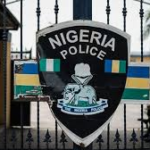Abuja, Nigeria — In the evolving discourse around national security, facts on the ground are steadily building the case for Malam Nuhu Ribadu as the most effective National Security Adviser (NSA) Nigeria has had since the office was created by General Ibrahim Babangida in 1990.
According to Reno Omokri, A sharp contrast can be drawn between Nigeria’s security landscape under Ribadu and previous administrations. Under Ribadu’s stewardship, terror groups like Boko Haram and the Islamic State West Africa Province (ISWAP) have faced significant setbacks. Their leadership structures have been disrupted to such a degree that many Nigerians can no longer name their current leaders—unlike during the previous Buhari administration, when terror leaders operated more visibly.
Critics aligned with former Kaduna State Governor, Nasir El-Rufai, have attempted to question Ribadu’s competence, but facts seem to undermine their claims. The bitterness, some analysts suggest, stems from political rivalry rather than objective assessment.
During Buhari’s presidency, security lapses were recurrent. After 73 people were killed in Benue State during the 2017 Yuletide, Buhari instructed then-Inspector General of Police Ibrahim Idris to relocate to the state. However, it was later revealed—shockingly, by Buhari himself—that the IGP failed to comply.
Fast forward to 2024, a similar crisis emerged in Plateau State. Within 24 hours, Ribadu personally visited the area, coordinated with security forces, and ensured preventive measures were swiftly deployed. The difference? Immediate action and visible results.
Between 2022 and 2023, under the last administration, Nigeria suffered major security breaches, including the July 5, 2022 attack on Kuje Prison by over 400 terrorists, which led to the escape of 879 inmates—many of them hardened criminals. Weeks later, the Brigade of Guards was also attacked, as was the Kaduna-Abuja railway earlier that year.
Since Ribadu assumed office on June 26, 2023, no similar incidents have occurred in the Federal Capital Territory. Analysts note a significant drop in terrorism and banditry across the North.
Even more telling is the death or capture of at least 16 high-profile bandit leaders under Ribadu’s watch. The list includes notorious figures such as Kachalla Ali Kawaje, Kachalla Dangote, and Yellow Hassan—individuals previously considered untouchable.
Unlike the previous era, where public officials were often seen in photos with heavily armed bandits, the current administration has focused on eliminating the threat through intelligence-led operations and prosecutions.
Security experts and stakeholders point to these tangible improvements as evidence of Ribadu’s effectiveness. Rather than performative activity, he has delivered measurable outcomes—making Nigeria safer and more secure.
Though political opponents may attempt to revise the narrative, the evidence suggests that Ribadu’s legacy as NSA is shaping up to be one of decisive action and real results.



